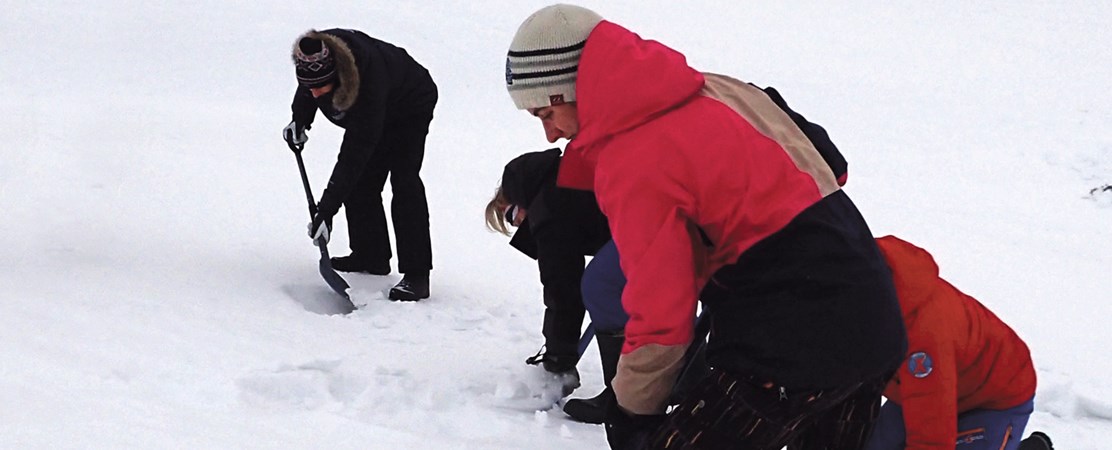Growing Demand for Engineers with Arctic Experience

By Gunvor M. Kirkelund, Head of Studies, Associate Professor, Technical University of Denmark (DTU) and Sabina Askholm Larsen, Communications Officer, Technical University of Denmark (DTU)
There is a growing demand for graduates who know how to work in the Arctic, not just in theory but also in practice. That is the basic philosophy for establishing two new Master’s level educational activities at the Technical University of Denmark (DTU) concerning Arctic and cold climate engineering.
Since 2001, DTU has offered a Bachelor of Engineering in Arctic Technology. To give graduate students an opportunity to specialize in the Arctic as well, DTU has developed two new educational initiatives on Master’s level: the Arctic Semester and the Nordic Master in Cold Climate Engineering. Common to both programs is the focus on teaching how to operate as an engineer in the Arctic by actually being in the Arctic.
DTU offered the Arctic Semester for the first time in spring 2016. It takes place in the Greenlandic town of Sisimiut and is an opportunity for Master of Science students to get an insight to and experience the extreme conditions that apply when working as an engineer in the Arctic. The Nordic Master in Cold Climate Engineering was launched half a year later, in autumn 2016. The program consists of three different tracks: Land, Sea and Space. Each track has its own profile and appeals to students with different academic backgrounds, and they all focus on different aspects of working as an engineer in a cold climate. The Arctic Semester in Sisimiut is mandatory for the students in the Land track, while other students in the program have the opportunity to go to Svalbard and attend courses or write their Master’s thesis at the University Centre in Svalbard (UNIS).
Despite the obvious need and demand for special competences in cold climate engineering, DTU found that no full Master’s program in the field was offered in any of the Nordic or European countries. This paved the way for the development of the Nordic Master in Cold Climate Engineering within the Nordic Five Tech alliance in collaboration with the Norwegian University of Science and Technology (NTNU) and Aalto University in Finland. We were able to develop a comprehensive program with the three academic tracks by combining facilities and courses already at our disposal. This resulted in a joint degree program during which the students study at two of the three collaborating universities. The Nordic Master in Cold Climate Engineering will have its first graduates in summer 2018. The program has also resulted in increased research collaboration between the universities involved. A concrete example is three PhD collaborations about Arctic engineering issues.
The Arctic Semester and Nordic Master in Cold Climate Engineering are open for applications from all students, not just those with a Bachelor’s degree from DTU, NTNU or Aalto University. DTU received funding from UArctic-coordinated Danish project grants to develop the Arctic Semester. The Nordic Council of Ministers funded the development of the Nordic Master in Cold Climate Engineering.
